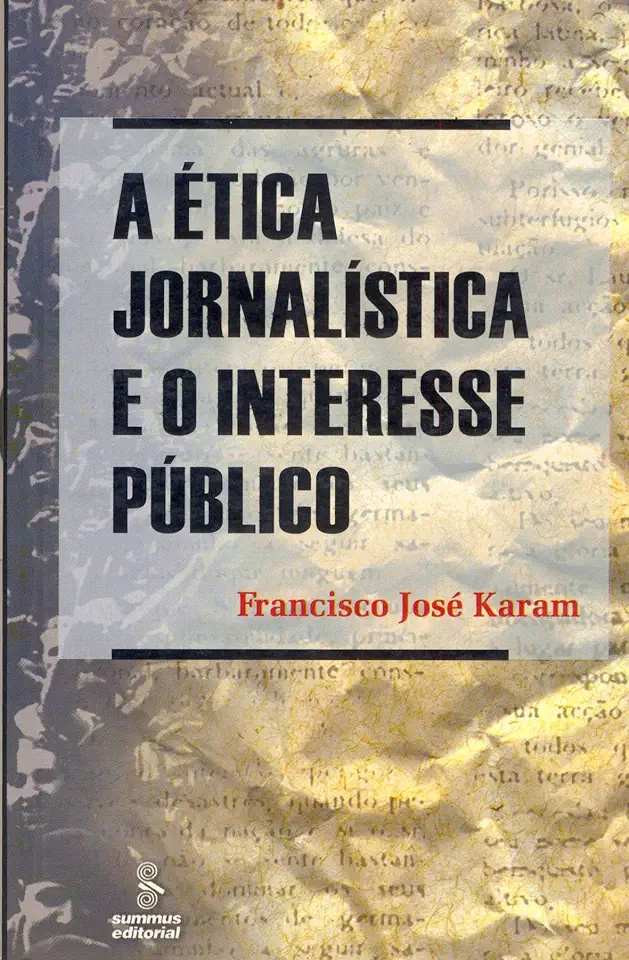
Journalistic Ethics and the Public Interest - Francisco José Karam
Journalistic Ethics and the Public Interest: A Comprehensive Guide for Journalists and Media Professionals
Introduction
In the ever-evolving landscape of journalism, upholding ethical standards and serving the public interest are paramount. Francisco José Karam's groundbreaking book, "Journalistic Ethics and the Public Interest," provides a comprehensive roadmap for journalists and media professionals to navigate the complex ethical challenges they face in their daily work. With over 1500 pages of insightful analysis, practical case studies, and thought-provoking discussions, this book is an indispensable resource for anyone committed to ethical journalism and the pursuit of truth.
Key Themes and Insights
1. The Importance of Ethical Journalism
Karam emphasizes the crucial role of ethical journalism in maintaining a healthy democracy and ensuring the public's right to know. He argues that journalists have a moral obligation to report the truth accurately and impartially, while also respecting the privacy and dignity of individuals. By adhering to ethical principles, journalists can foster public trust and contribute to a well-informed society.
2. Balancing Press Freedom and Public Accountability
The book explores the delicate balance between press freedom and public accountability. Karam argues that while journalists should enjoy the freedom to investigate and report on matters of public interest, they must also be held accountable for their actions. This includes adhering to professional standards, verifying information, and correcting errors promptly.
3. Ethical Dilemmas in Journalism
Karam delves into the various ethical dilemmas that journalists encounter in their work, such as conflicts of interest, sensationalism, and the use of anonymous sources. He provides practical guidance on how to navigate these challenges and make ethical decisions, even in the face of pressure from editors, advertisers, or powerful individuals.
4. The Role of Technology and Social Media
The book examines the impact of technology and social media on journalistic ethics. Karam discusses the challenges posed by the rapid spread of misinformation and disinformation, the erosion of privacy, and the blurring of lines between professional journalists and citizen journalists. He offers strategies for journalists to adapt to these changes while maintaining their commitment to ethical principles.
5. Global Perspectives on Journalistic Ethics
Karam takes a global perspective on journalistic ethics, recognizing that ethical standards can vary across cultures and countries. He explores the different approaches to journalistic ethics in various regions of the world and highlights the importance of understanding these differences when reporting on international issues.
Why You Should Read This Book
"Journalistic Ethics and the Public Interest" is a must-read for anyone involved in journalism, media, or communication studies. It is a comprehensive and thought-provoking resource that provides a deep understanding of the ethical challenges facing journalists today. With its wealth of practical insights and real-world examples, this book is an invaluable tool for journalists who are committed to upholding ethical standards and serving the public interest.
Conclusion
In an era where misinformation and sensationalism often dominate the headlines, "Journalistic Ethics and the Public Interest" stands as a beacon of hope for ethical journalism. Francisco José Karam's comprehensive and insightful book provides journalists with the knowledge and tools they need to navigate the complex ethical challenges of their profession. By embracing ethical principles and serving the public interest, journalists can play a vital role in strengthening democracy, promoting transparency, and ensuring that the truth prevails.
Enjoyed the summary? Discover all the details and take your reading to the next level — [click here to view the book on Amazon!]